Africans’ View of Continent Is Not Western Media’s
Where Are Blacks, Latinos in WaPo Foreign Coverage? (Sept. 3, 2022)
Jan. 6 Committee Left Racial Concerns Unspoken
Dax Tejera, ‘This Week’ Producer, Dies at 37
Cheryl Hurd of NBC Bay Area Takes Buyout
Homepage photo, credit U.S. State Department
Journal-isms Roundtable photos by Sharon Farmer/sfphotoworks
Support Journal-ismsDonations are tax-deductible.
Fifty-eight people were on the Journal-isms Roundtable Zoom call Dec. 18, with 198 having watched on Facebook as of Friday, and 112 more on YouTube by then. “How do we make the continent feel like, you know, Africa belongs to Africans?” asked Emmanuel Dogbevi of Ghana. (Credit: YouTube)
Africans’ View of Continent Is Not Western Media’s
Are far too many African leaders “dancing to the tune of whiteness”?
Are an outsized number of media owners on the continent so taken by the model of Western journalism that they will run pieces about a neighboring country written by a Western news service instead of by a journalist from the country in question?
And are the media that African Americans and Africans consume teaching their readers and viewers the worst about the other?
Yes, yes and yes, according to African journalists and academics who joined a multicultural group of journalists who gathered by Zoom for a Journal-isms Roundtable Dec. 18, pegged to the U.S.-Africa Leaders Summit held Dec. 13-15 in Washington, attended by 50 African heads of state.
But while the summit was the news peg for the Roundtable, the topic most wanted to discuss was the state of African leadership and of the African media houses, and the view of Africa portrayed in the West. It became clear that the Western priorities were strikingly at odds with those of the Africans who live there, if the journalists have it right.
“I don’t know where else we could hear from such an informative group about Africa,” 60-year news veteran Barbara Reynolds told her colleagues via the chat room. “This is indeed phenomenal,” wrote Carolyn Lumsden, formerly editorial page editor at the Hartford Courant. “I’m an adjunct professor at Central Connecticut State and my Nigerian students work hard to dispel . . . co-students’ images of Africa. . . . It was spellbinding.”
Fifty-eight people were on the call, with 198 having watched on Facebook as of Friday, and 112 more on YouTube by then. You can watch the embedded version above or click here for the YouTube site.
The session built on an August 2019 Roundtable about the relationship of Africans and African Americans that commemorated the 400th anniversary of the British landing at Jamestown, Va., in 1619, and another this past April on the need for diversity among foreign correspondents.
 Africa-born participants on the call included Emmanuel K. Dogbevi, managing editor at Ghana Business News and executive director at NewsBridge Africa; Milton Allimadi (pictured) a Ugandan-American who publishes the Black Star News in New York; Zadi Zokou, a filmmaker born in the Ivory Coast who became a U.S. citizen this month; Rodney Sieh, editor-in-chief and publisher of the investigative publication FrontPageAfrica in Liberia, and J. Siguru Wahutu, Ph.D., originally from Kenya, a New York University assistant professor of media, culture and communication.
Africa-born participants on the call included Emmanuel K. Dogbevi, managing editor at Ghana Business News and executive director at NewsBridge Africa; Milton Allimadi (pictured) a Ugandan-American who publishes the Black Star News in New York; Zadi Zokou, a filmmaker born in the Ivory Coast who became a U.S. citizen this month; Rodney Sieh, editor-in-chief and publisher of the investigative publication FrontPageAfrica in Liberia, and J. Siguru Wahutu, Ph.D., originally from Kenya, a New York University assistant professor of media, culture and communication.
Others had families more recently from the continent, such as columnist Karen Attiah of The Washington Post, daughter of Ghanaians; or have become Africanists, like Melvin Foote, who founded the Constituency for Africa here in the United States, and to some extent John Yearwood, a Politico editor who has been the platform’s global news editor, global chair of the Vienna-based International Press Institute and world editor of the Miami Herald.
Yearwood had come from interacting with African leaders at the U.S.-Africa Leaders Summit a few days earlier, had moderated a panel on “The Way Forward to Africa and Africa-U.S. Relations” at the Export-Import Bank’s annual conference, and attended a private lunch with five presidents.
Wahutu, whose research subjects include the sociology of media, data privacy, media manipulation, human rights violations, genocide and mass atrocity, hit on many of the main points when he told us:
“When Emmanuel [Dogbevi] is saying our Western journalists can reach the president of Ghana and I cannot, it’s because the president of Ghana is dancing to the tune of whiteness . . . . there’s the president of Kenya, my home country . . . everybody wants to dance to this particular tune and leave out not just local journalists, who would hold them to account, but also local voices, and it is a problem that is societal. And often we tend to go ‘journalism this’ and ‘lead us this,’ and I go well, no, what would convince a Kenyan not to use Uber [instead of] a local ride-hailing app, is because Uber is American, right, and those things seep into the psyche of journalists who live in these particular societies, so there is a conversation to be had,” and the discussion must be global.
Wahutu held up the leaders of the then-newly liberated African countries, such as Kwame Nkrumah of Ghana and Leopold Senghor of Senegal, saying they argued for “ways to form a transnational movement that holds power to account. Not some power, power period, right.
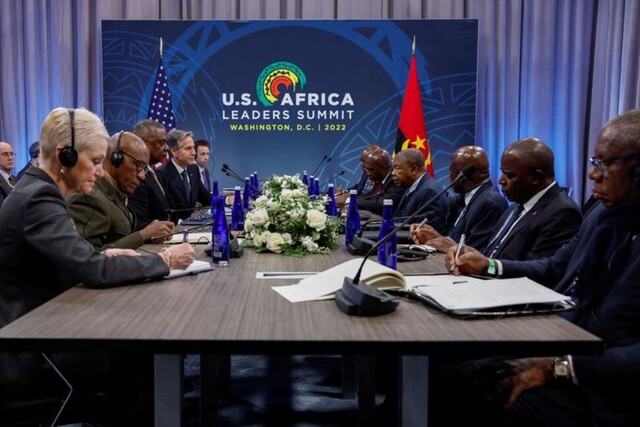
“This moves from the U.S. to the French and what they’re doing in their former colonies to the Brits to the Spanish — everyone — let’s hold them to account and go ‘how can these structures work for us?’ rather than keep on extracting from the continent to the benefit of maybe 40 or 50 older African men who [have] — what — millions and billions of dollars, right, yet people can’t even afford food or bread, and they’re being propped up by external governments, and that’s why I think it’s important to have these conversations about global connectivities.
“It’s also important to remember that just because journalist X is Black doesn’t mean they have the best interest of the continent at heart. . . . Just because journalist Y is African doesn’t mean they have the best interest of the continent at heart. And we need to recognize these as operating in the same space and hold everybody to account.”
Dogbevy brought the conversation to economics, expanding on a subject he wrote about in 2019: “Even though Africa produces 75 per cent of all the cocoa in the world, the continent gets only 2 per cent of the $100 billion revenue from the chocolate industry.
“It is not any different with the mining sector either.”
Allimadi added, “Almost all of the African leaders, if not all, serve the same role that the European colonial governors used to serve. They are supervisors of these multiple countries that have failed to unite, otherwise they would become a power like China, so these are essentially supervisors. The budget is set by the World Bank or the IMF [International Monetary Fund].
“You cannot tell me you’re [an] independent country if an international institution like the World Bank, where the majority shareholders are the United States and the other Western powers, set your budget and they tell you what you can or cannot do, so for example the World Bank and IMF will not allow Africa to industrialize and start manufacturing automobiles, electronic equipment, and really compete with the United States and the other industrialized countries. . . . “
Adam Clayton Powell III, veteran journalist who now runs an election cybersecurity initiative at the University of Southern California, amended Allimadi’s statement, in the process underscoring how little positive news about Africa we receive.
“There are large auto assembly plants in Port Elizabeth, South Africa, where VW, BMW and Ford make cars. In 2010 (maybe still the case now), if you bought certain BMW models here in the US, you were buying a car made in Africa, not Germany (BMW never advertised that, to my knowledge). And FYI that African BMW plant was winning awards in the company for quality control.”
In this video, with English subtitles, Alain Foka asks, “Can France regain its place as a privileged partner in French-speaking Africa? Can the Macron method reconcile Paris with its former backyard?” referring to French President Emmanuel Macron. “What relationship should Africa establish with the great powers that have so far imposed their diktat on it?” Foka is among the influential Africans challenging their leaders on the internet. (Credit: YouTube)
It isn’t that young people aren’t aware of the ineffectiveness of their leaders, Zokou told us, referring to Francophone Africa. “Because of the internet, many young Africans right now in this part of Africa are aware of the inefficiency of our leaders . . . I’m going to tell a few names here. I’m sure many of you have never heard about them but they are very influential on the continent.
“One is Kémi Séba (video). He was — he’s a French from France and Benin but he left France to live in Benin now and he’s very influential. You have people like Franklin Nyamsi (video) who is professor in France from Cameroon and Cote d’Ivoire and he has millions of followers, and you even have the lady we call the lady of Sochi [Nathalie Yamb] (video) . . . She was expelled from Cote d’Ivoire because the president thought that she was criticizing France and our leaders too much, so she was expelled. She lives in Switzerland right now.
“So there’s a vast movement in Francophone Africa right now through the internet and a lot of young people right now are aware of everything.”
However, the internet is a double-edged sword, Sieh of Liberia said. “Because everything is too social media, everything is on Instagram, everything is on Facebook . . . every Tom, Dick and Harry now is a journalist. . . . African stories are not just not being told but also we’re competing with the social media component of the media of journalism. . . . People believe what you say because it’s on social media.”
Still, many young people remain pessimistic, said Dogbevi, and it can be traced to economics — and the role the media can play.
“How do we empower Africa so Africa can be in the position to tell its own story?” Dogbevi asked. “Once you are economically disempowered you can’t even tell your own story because you don’t have the power to tell your own story. It’s an economic game. How do we do that?
“How we do that when there is so much unaccountable leadership on the continent?
“So you look at the relationship between Africans and the diaspora . . . most African Americans come to Africa or they come to Ghana on pilgrimage and they love to be here and they enjoy the experience and then they go back and then — what after the reconnection?
“How do we build synergy? How do we build that conversation where we build and, you know, that power and energy together to transform and change the narratives, because the narratives are really, really depressing, very depressing, to the extent that sometimes most Africans feel the only way out of, you know, the situation is to get out of Africa.
“As I speak to you now, most African young people particularly in Ghana are looking for the way out of the country, out of the continent. How do we make the continent feel like home to everyone else? How do we make the continent feel like, you know, Africa belongs to Africans?”
 Sieh (pictured) was imprisoned twice; the last time he was sentenced to 5,000 years in prison. Now he runs FrontPageAfrica, the investigative Liberian newspaper he founded. He has worked in the U.S., on the copy desk of the Post-Standard in Syracuse, N.Y.
Sieh (pictured) was imprisoned twice; the last time he was sentenced to 5,000 years in prison. Now he runs FrontPageAfrica, the investigative Liberian newspaper he founded. He has worked in the U.S., on the copy desk of the Post-Standard in Syracuse, N.Y.
“If you look at the newsrooms in the U.S., for example, most of them . . . cut costs on coverage of other countries across the world, especially Africa. Unless it’s a bombing somewhere or some plane crash, you won’t hear anything from the African for African [views] and it is a tragedy, because we live in a world where everything is connected to social media, to Instagram, Facebook, Twitter.
“Everyone’s connected, so it’s just a matter of how we see the world and how the world sees us, but in doing that, it paints a very bad picture — that they just don’t care about us, and we have to be the ones to drive our stories to the world. . . . “
Part of the problem is lack of resources, the speakers said.
“That’s a really critical part of the challenge; most of the journalists are not properly trained,” said Dogbevi, in Ghana. “They don’t have the skills to report the way they should, and for the few journalists who do the reporting that is considered good quality critical reporting, they are seen as enemies of the state, and because of that, for instance the New York Times reporter can get an interview with the president of Ghana so easily or the Newsweek, but I can’t get an interview with the president of my country because I’m considered a critical journalist who doesn’t sing the praises of the government in power.”
Fergus Shiel, managing editor of the International Consortium of Investigative Journalists, which works with journalists around the world, told Journal-isms afterward that he thought “the accounts of the health of journalism in Africa were in some ways overstated. I know there are many brave African journalists doing a marvelous job but, at least in our area, they’re exceptional and in desperate need of additional support,” he said.
 Nevertheless, the question remains, where does that leave African Americans? Hazel Trice Edney (pictured), founder of the Trice Edney News Wire, told of attending a program at the National Press Club in the fall where Africans refused to stand for “Lift Every Voice and Sing,” known as the Black National Anthem. What was up with that? Edney asked.
Nevertheless, the question remains, where does that leave African Americans? Hazel Trice Edney (pictured), founder of the Trice Edney News Wire, told of attending a program at the National Press Club in the fall where Africans refused to stand for “Lift Every Voice and Sing,” known as the Black National Anthem. What was up with that? Edney asked.
“It was only after I came to the United States that I really started to understand the total history of the Black African experience in this country, which is not taught in Africa,” Allimadi replied. “It’s not taught to many Africans, so they’re totally, woefully ignorant, and that would be my explanation.”
Edney messaged about the Roundtable, “My biggest takeaway was the discussion on how ignorant Africans and African-Americans are about each other and how we tend to act, even make important decisions based on that lack of knowledge.”
Reynolds asked what to tell friends who said to her, “Well, that’s well and good what Biden is doing with Africa, but what about us? What about slavery? What about reparations?”
Attiah, who said she chose journalism as a career after reading insulting characterizations of Africa while a college student, invoked “the synergies between African colonial independence movements and the civil rights movements here. It was always looked upon as a global struggle,” she said.
Perceived sins in African coverage, whether in Washington Post reporter Keith B. Richburg’s 1997 book “Out of America: A Black Man Confronts Africa,” or a New York Times ad recruiting an African correspondent for which the Times would apologize, were not forgotten.
Such negativity can be self-perpetuating, said Lynne Adrine, just retired as director of the D.C. Graduate Program, Broadcast and Digital Journalism, at Syracuse University.
“I’m just finishing my eighth round of being a juror for the duPont-Columbia Awards, and I mention that because there have been times when we have had journalism and reporting presented for consideration before us and about Africa, especially concerning the Ebola and other situations,” she said.
“And it’s always about the pathology of Africa, it’s always about what’s wrong with Africa, as opposed to anything else about what’s going on with any of the specific countries within the continent. And I think we have to be involved with that because these mainstream journalism entities and organizations look at Africa in terms of what’s wrong. What’s wrong. Not to say there are not things that are wrong, but we also have to elevate their focus so that we understand that these countries need coverage the way that every other country has.”
Not all media outlets were faulted. Quartz Africa was singled out as providing good coverage.
 Yearwood (pictured in multiple) provided further direction.
Yearwood (pictured in multiple) provided further direction.
“There need to be more opportunities for us not only to report about Africa in this country but also to travel to the continent, and that’s where organizations like NABJ and others can be helpful. . . ,” he said, referring to the National Association of Black Journalists.
“The fact of the matter is there are so many great stories to tell from Africa, and you know I think to some extent . . . people who look like us need to be at the forefront of telling these stories.
“There are a lot of challenges in Africa, but what we’ve seen in the last few years in terms of the whole issue of development and democracy — if you look at what’s happening in Zambia, for example, the new president [Hakainde] Hichilema, he’s doing a lot of things there and he’s becoming a real rock star on the continent in terms of moving a country forward democratically.
“I mean as it relates to the free press, I remember being in Zambia a few years ago when the previous president shut down some of the major media houses. He has been really adamant in saying that, you know, the press has a responsibility to report, and . . . instead of closing, has been opening organizations.
“And also I want to point out one other thing about what the U.S. government is doing around at the [Export-Import] bank, which has a new president, Reta Jo Lewis, who’s African American.
“She has a mandate to improve and increase business between the U.S. and Africa, and so far since she’s been appointed by Biden in this new job she has developed and worked on over 7 or 8 billion dollars in deals between the U.S and Africa and she’s pledged to do a lot more. So there are some things happening . . . despite the challenges.”
- African Growth and Opportunity Act: US to remove Burkina Faso from AGOA effective 1 January 2023: White House (Nov. 2)
- Milton Allimadi, Journal-isms: How the Western Media Demonized Africa (July 13, 2021)
- Rhett Buttle, Forbes: A Conversation With Export–Import Bank Of The United States Chair Reta Jo Lewis
- Roger Cohen, New York Times: Putin Wants Fealty, and He’s Found It in Africa
- Joe Davidson, Washington Post: Africa summit boasted progress, though differences with U.S. remain (Dec. 16)
- Katharine Houreld, Washington Post: U.S. troops are back in Somalia and scrambling to help its special forces (Dec. 10)
- Howard W. French, Foreign Policy: How Africa Can Avoid Getting Scrambled
- International Press Institute: Ghana fails to secure justice for murdered journalist (Jan 17, 2019) (still no arrests)
- Jovonne Ledet, Black Information Network: Biden Apologizes To African Leaders For ‘Unimaginable Cruelty’ Of Slavery
- Stacy Morford, the Conversation: Three reasons why the US Federal Reserve Bank holds the world in its hands (Sept. 20)
- NAACP: NAACP, Amos C. Brown Student Fellows Return from Transformative Journey through Ghana (Aug. 12)
- Anita Powell, Voice of America: US-Africa Summit Ends With Billion-Dollar Pledges, Hints of Biden Visit (Dec. 15)
- Eugene Robinson, Washington Post: In the ‘new scramble for Africa,’ Africans must come first (Dec. 15)
- Joseph Siegle, saiia.org, South Africa: Russia in Africa: Resurgent great power or bellicose pretender? (Dec. 10)
- Salem Solomon, Voice of America: Africa’s Media Freedom in Spotlight as Leaders Gathered in Washington
- Paul Tilsley, Fox News: US-Africa Leaders Summit: Washington ‘playing catch-up’ with Russia and China (Dec. 14)
- Binyavanga Wainaina, How to Write about Africa (satire) (May 2, 2019)
- Armstrong Williams, The Hill: Africa must heal itself — and not rely on America
From Sept. 3, 2022:
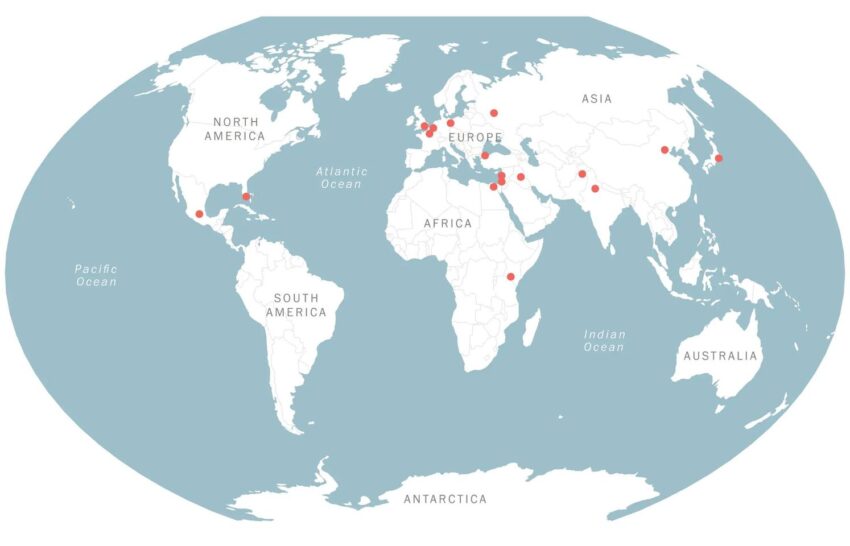
Where Are Blacks, Latinos in WaPo Foreign Coverage?
The Washington Post Monday [Aug. 29] announced that Katharine Houreld is joining The Washington Post as East Africa bureau chief, “becoming one of three correspondents covering a continent undergoing dramatic changes even as it confronts worsening climate change and persistent unrest.“
Houreld, who has been East Africa bureau chief for Reuters based in Nairobi, is also the latest addition to the Post foreign news desk who is not Black or Hispanic. The Post website lists 33 foreign correspondents, all appearing to be white or Asian American.
The Post once had such editors of color as Eugene Robinson, now a columnist, and Keith Richburg, now director of the Journalism and Media Studies Centre at the University of Hong Kong. Both Black journalists held the No. 2 foreign desk job of foreign editor.
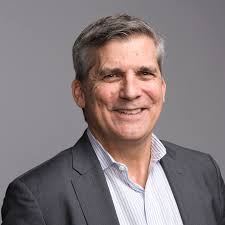 Asked whether any Black or Hispanic journalists remained on the Foreign Desk, Foreign Editor Douglas Jehl (pictured), referred the question to Post public-relations spokesperson Molly Gannon Conway, who replied, “Our annual diversity and inclusion report is what we can share publicly on this topic.”
Asked whether any Black or Hispanic journalists remained on the Foreign Desk, Foreign Editor Douglas Jehl (pictured), referred the question to Post public-relations spokesperson Molly Gannon Conway, who replied, “Our annual diversity and inclusion report is what we can share publicly on this topic.”
The report lists general numbers for “news and editorial,” but does not mention the foreign news desk.
 Eva Rodriguez (pictured) was the Post’s deputy foreign editor for nearly seven years until she left in June to become editor-in-chief of the Fuller Project, which is “focused on global coverage to raise awareness of the myriad of important, interconnected issues impacting women and girls, and spark action through storytelling.”
Eva Rodriguez (pictured) was the Post’s deputy foreign editor for nearly seven years until she left in June to become editor-in-chief of the Fuller Project, which is “focused on global coverage to raise awareness of the myriad of important, interconnected issues impacting women and girls, and spark action through storytelling.”
At an April 24 Journal-isms Roundtable on the need for diversity among foreign correspondents, Rodriguez made a general observation that she said was not specifically about the Post.
“So much of what we do as Western organizations is through a Western lens — by definition, which distorts what is actually happening on the ground.
“It does not always reflect the real experiences of groups in those countries, and particularly women and women of color, who are often underrepresented in the news, not quoted as experts in that, and so I do think we need to think as foreign correspondents of those stories that are not necessarily at the top of our list for our editors.”
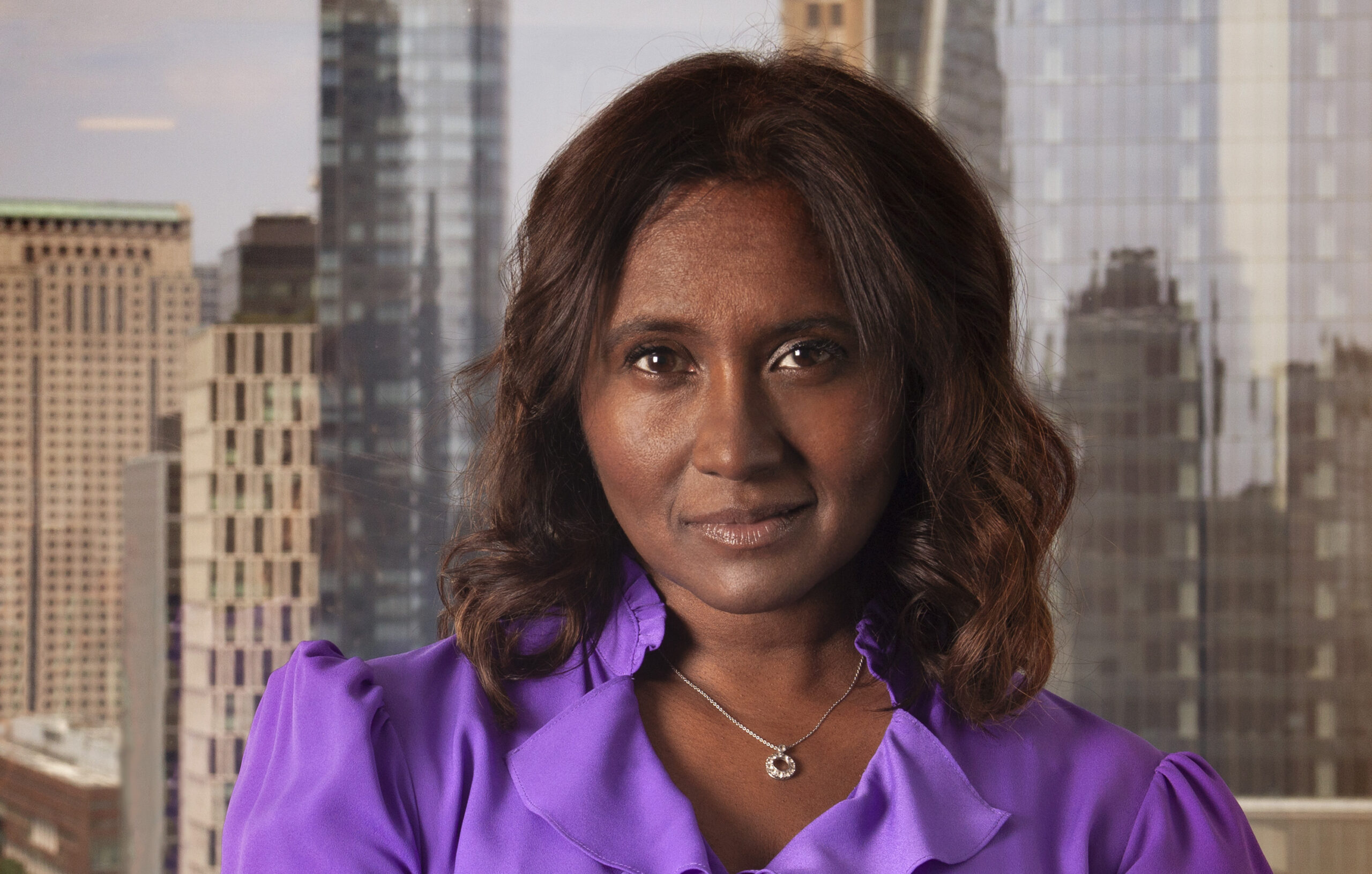 Daisy Veerasingham (pictured), president and CEO of the Associated Press, the organization where Post editor Sally Buzbee was executive editor, told AP journalists last November, “We need to look like the places in the world that we cover.” She said she believes that the AP does so overseas. But in the United States, “we have work to do,” especially with cultural diversity.
Daisy Veerasingham (pictured), president and CEO of the Associated Press, the organization where Post editor Sally Buzbee was executive editor, told AP journalists last November, “We need to look like the places in the world that we cover.” She said she believes that the AP does so overseas. But in the United States, “we have work to do,” especially with cultural diversity.
Rodriguez also told the Roundtable that she’s “seen too many examples of . . . especially women and journalists of color [who] are brought into institutions, and yay! That is a win. But as soon as you get there, you are now — the things that were so appealing about you, your skills, your smarts, your ability to see different stories, to connect on a real level with many different people, are now sometimes banged out of you, because you need to fit into this square. . . .
“Cling fiercely to that which, you know, makes you such an important voice in this space. And that is your abilities, and your experiences in raising new stories, new angles, new voices that need and deserve to be heard.”
Rodriguez added that hiring editors should ask themselves, “Are we making sure that that is really a reflection of your best people, or is it just a reflection of those who are in power already? I think every institution needs to do a much better job of making sure that we are reaching out and really being inclusive, not just checking off a box.”
- Benjamin Mullin and Katie Robertson, New York Times: Frustrations Mount at Washington Post as Its Business Struggles

Jan. 6 Committee Left Racial Concerns Unspoken
“The most striking thing about Monday’s final public meeting of the Select Committee to Investigate the January 6th Attack on the U.S. Capitol was what wasn’t said,” Kimberly Atkins Stohr (pictured, below) wrote for the Boston Globe Tuesday under the headline, “Jan. 6 committee leaves crucial lessons about race unspoken.”
Vice chair Liz Cheney, R-Wyo., “of course, is not the first official to recognize the importance of prohibiting those who have used their position to attack our nation’s democracy from ever ascending to power again. The 14th Amendment includes an explicit ban on any federal officeholder who previously took an oath to support the U.S. Constitution from holding office again if they ‘engaged in insurrection or rebellion against the same, or given aid or comfort to the enemies thereof.’
 “That post-Civil War language was drafted specifically to prevent former Confederate officials from holding elected office. The teeth to enforce that provision came with the passage of the Ku Klux Klan Act of 1870, a law designed to stop the reign of terror against Black people through force, intimidation, and violence. It was one of the vitally important legal provisions that rung in the era of Reconstruction, the crucial effort to rebuild a nation torn apart by a war over slavery and enfranchise Black Americans with the rights to vote, run for office, have access to education, use public accommodations, own land, gain employment, and more.
“That post-Civil War language was drafted specifically to prevent former Confederate officials from holding elected office. The teeth to enforce that provision came with the passage of the Ku Klux Klan Act of 1870, a law designed to stop the reign of terror against Black people through force, intimidation, and violence. It was one of the vitally important legal provisions that rung in the era of Reconstruction, the crucial effort to rebuild a nation torn apart by a war over slavery and enfranchise Black Americans with the rights to vote, run for office, have access to education, use public accommodations, own land, gain employment, and more.
“That effort was short-lived.
“The pushback against Reconstruction, driven by Southern White citizens who openly expressed the view that Black people were unfit to occupy such spaces in American society, led to Jim Crow and the entrenchment of the kind of institutional racism that still exists today.
“Backlash quickly took the teeth out of the Klan Act. With a vote of more than two-thirds of Congress, the Amnesty Act allowed those who fought for and defended the Confederacy to hold office again – and could now allow [Donald] Trump to do the same.
“The committee also left unanswered questions about how the Disqualification Clause operates today. Does it even work anymore? . . .”
Stohr continued, “Part of the committee’s charge was to recommend ways to ensure Jan. 6 never happens again, and evaluate all the factors that led up to it – including the role extremism played. Trump told a White nationalist organization to ‘stand by’ during a presidential debate, then summoned the mob to Washington, D.C., after he lost the election, and the group’s members heeded his call. This is exactly what the drafters of the 14th Amendment and the Ku Klux Klan Act sought to guard against.
“The very same Confederate flags that waved in opposition to Reconstruction efforts then were unfurled during an insurrection less than two years ago. The very votes contested that day were from places where the turnout of Black and Brown people made the difference: Detroit; Milwaukee; Philadelphia, and; Atlanta. Racial slurs were hurled at U.S. Capitol Police officers. And the insignias of White nationalist groups were proudly displayed on many of the rioters’ clothing.
“Jan. 6 was about a lot of things, but importantly, it was about race in America. Yet, in that last meeting summing up the stakes, the committee missed that fact entirely. That leaves in place all the ingredients for history to repeat. Again. And again.”
- Charles M. Blow, New York Times: Gods Don’t Bleed. Trump Is Bleeding.
- Joe Davidson, Washington Post: Democrats’ probe of white violent extremism likely to stop under GOP
- LZ Granderson, Los Angeles Times: The lonely exit of Adam Kinzinger
- Mike Lillis and Mychael Schnell, The Hill: How the Jan. 6 committee wants to safeguard democracy: 11 recommendations (including media recommendation)
- Clarence Page, Chicago Tribune: Republicans release their Jan. 6 report. Which riot did they see?
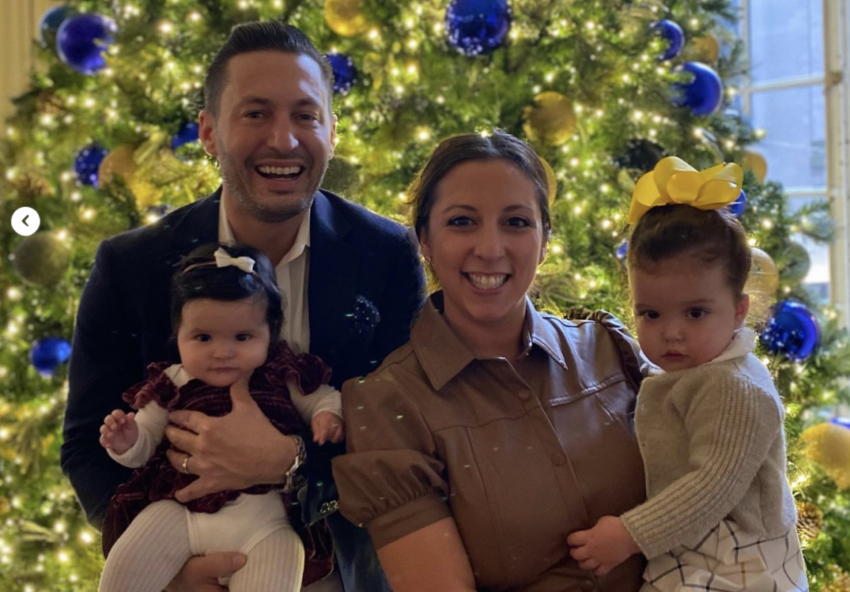
Dax Tejera, ‘This Week’ Producer, Dies at 37
“Dax Tejera, the executive producer of the ABC News Sunday public affairs show This Week, has died. He was 37,” Alex Weprin reported Saturday for the Hollywood Reporter.
“Tejera died suddenly of a heart attack on Friday, Dec. 23, according to a memo sent to staff by ABC News president Kim Godwin on Saturday.
“Tejera, a veteran TV news producer at both ABC and NBC News, had led the Sunday show anchored by George Stephanopoulos, Jonathan Karl and Martha Raddatz since just before the COVID-19 pandemic erupted around the world. He joined ABC News in 2017 as a senior producer based in Washington, D.C. . . .”
“Tejera was known for his competitive spirit, pushing the This Week team to become the top Sunday public affairs show, and leaning into the strengths of Karl, Raddatz and Stephanopoulos. Raddatz, for example, anchored the program from Ukraine amid Russia’s invasion. . . .”
A.J. Katz added for TVNewser, “Tejera joined ABC News as a senior producer in the Washington Bureau in 2017 producing remote-anchored broadcasts from across the country and specials from the Trump-Kim summit in Singapore and Trump-Putin summit in Helsinki.
“Prior to overseeing This Week as its executive producer, Tejera managed newsmaker interviews and covered major breaking news, including the ongoing pandemic, the 2020 presidential election and the January 6 insurrection at the Capitol.
“In addition, Tejera worked on numerous broadcast and streaming special events for ABC News. In September 2021 he co-executive produced Corazón de América – Celebrating Hispanic Culture, a primetime special for ABC that honored the contributions and achievements of the more than 60 million people who claim Latino and Hispanic heritage in the US.
“Prior to joining ABC News, Tejera was the ep of America with Jorge Ramos, and in collaboration with HBO produced a documentary film, Hate Rising (video), focusing on the rise of white nationalists and the alt-right. . . .”
- A.J. Katz, TV Newser: This Week EP Dax Tejera on the Program’s 40th Anniversary, Its Return to No. 1 and Why Sunday Shows are Still Important (Nov. 12, 2021)
KNTV prepared this tribute to Cheryl Hurd, who joined the station in 1998.
Cheryl Hurd of NBC Bay Area Takes Buyout
Cheryl Hurd, a reporter for KNTV-TV in San Jose, Calif., known as NBC Bay Area, bid goodbye to the station Friday after 25 years.
“On the surface, we’re losing a first-class reporter. But the deeper story is, the entire Bay Area is losing a first-class reporter,” the station said.
Quoting sources, Lesley Goldberg reported in October for The Hollywood Reporter that “while no formal offers have gone out, the conglomerate is looking to save costs by offering buyout packages to select employees across the entire company who have worked there for 10 or more years and who are age 57 and older.”
Meg James reported Dec. 7 for the Los Angeles Times that veteran reporters Beverly White, Vikki Vargas and Kim Baldonado were among four at NBC-owned KNBC-TV in Los Angeles accepting “voluntary early retirement” buyouts and who would be leaving the station at the end of this month.
To subscribe at no cost, please send an email to journal-isms+subscribe@groups.io and say who you are.
Facebook users: “Like” “Richard Prince’s Journal-isms” on Facebook.
Follow Richard Prince on Twitter @princeeditor
Richard Prince’s Journal-isms originates from Washington. It began in print before most of us knew what the internet was, and it would like to be referred to as a “column.” Any views expressed in the column are those of the person or organization quoted and not those of any other entity. Send tips, comments and concerns to Richard Prince at journal-isms+owner@
View previous columns (after Feb. 13, 2016).
View previous columns (before Feb. 13, 2016)
- Diversity’s Greatest Hits, 2018 (Jan. 4, 2019)
- Book Notes: Is Taking a Knee Really All That? (Dec. 20, 2018)
- Book Notes: Challenging ’45’ and Proudly Telling the Story (Dec. 18, 2018)
- Book Notes: Get Down With the Legends! (Dec. 11, 2018)
- Journalist Richard Prince w/Joe Madison (Sirius XM, April 18, 2018) (podcast)
- Richard Prince (journalist) (Wikipedia entry)
- February 2018 Podcast: Richard “Dick” Prince on the need for newsroom diversity (Gabriel Greschler, Student Press Law Center, Feb. 26, 2018)
- Diversity’s Greatest Hits, 2017 — Where Will They Take Us in the Year Ahead?
- Book Notes: Best Sellers, Uncovered Treasures, Overlooked History (Dec. 19, 2017)
- An advocate for diversity in the media is still pressing for representation, (Courtland Milloy, Washington Post, Nov. 28, 2017)
- Morgan Global Journalism Review: Journal-isms Journeys On (Aug. 31, 2017)
- Diversity’s Greatest Hits, 2016
- Book Notes: 16 Writers Dish About ‘Chelle,’ the First Lady
- Book Notes: From Coretta to Barack, and in Search of the Godfather
- Journal-isms’ Richard Prince Wants Your Ideas (FishbowlDC, Feb. 26, 2016)
- “JOURNAL-ISMS” IS LATEST TO BEAR BRUNT OF INDUSTRY’S ECONOMIC WOES (Feb. 19, 2016)
- Richard Prince with Charlayne Hunter-Gault, “PBS NewsHour,” “What stagnant diversity means for America’s newsrooms” (Dec. 15, 2015)
- Book Notes: Journalists Follow Their Passions
- Book Notes: Journalists Who Rocked Their World
- Book Notes: Hands Up! Read This!
- Book Notes: New Cosby Bio Looks Like a Best-Seller
- Journo-diversity advocate turns attention to Ezra Klein project (Erik Wemple, Washington Post, March 5, 2014)
When you shop @AmazonSmile, Amazon will make a donation to Journal-Isms Inc. https://t.co/OFkE3Gu0eK
— Richard Prince (@princeeditor) March 16, 2018

